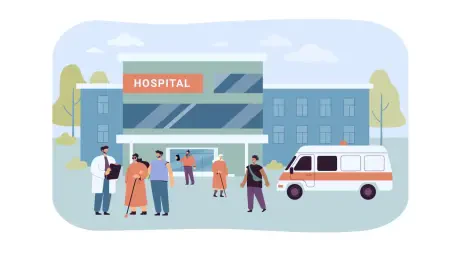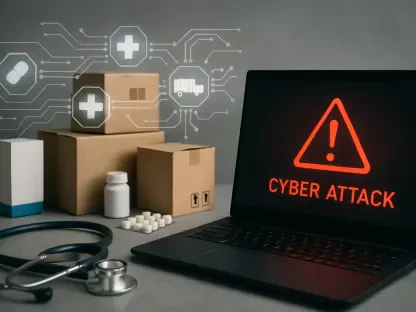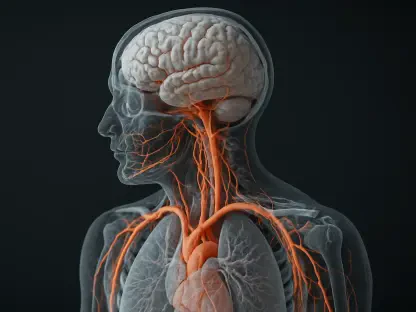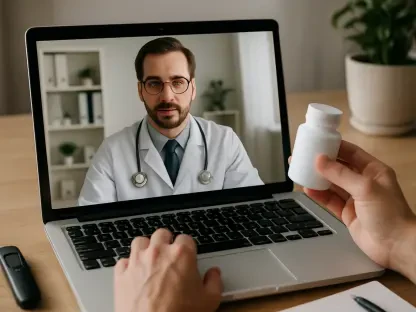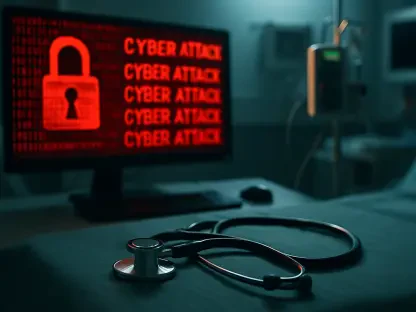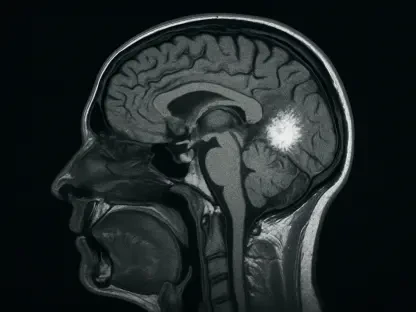In the heart of rural Georgia, where access to healthcare can often mean the difference between life and death, the Medical College of Georgia (MCG) at Augusta University is pioneering a transformative approach through its Center for Digital Health. With a staggering physician shortage looming across the United States—projected to reach a deficit of up to 86,000 doctors in the coming decade, according to the Association of American Medical Colleges—rural communities are disproportionately affected by limited medical resources and growing healthcare demands. MCG is stepping into this critical gap with digital health and telehealth initiatives that connect underserved areas to specialized care, offering a lifeline to those who might otherwise go without. This innovative strategy not only addresses immediate needs but also sets a precedent for how technology can reshape healthcare delivery in isolated regions. By leveraging connectivity, MCG ensures that distance no longer dictates the quality of care, providing a model that could inspire solutions nationwide.
Bridging the Gap in Rural Healthcare
The challenges facing rural Georgia are stark, with many communities struggling to access even basic medical services due to a scarcity of providers and the burden of an aging physician workforce. Digital health emerges as a vital solution, and under the leadership of Matt Lyon, MD, MCG’s Center for Digital Health is harnessing technology to connect rural patients and local providers with specialists at MCG and Wellstar MCG Health. This telehealth framework eliminates the need for long, often grueling trips to urban centers for expert consultations, making care not only more accessible but also more affordable for families already stretched thin. The impact is immediate and profound, as patients in remote areas gain access to life-saving expertise without leaving their hometowns, fundamentally altering the landscape of healthcare delivery in regions where every mile counts.
Since partnering with Wellstar Health System a couple of years ago, MCG has significantly expanded its telehealth network, growing from 15 to 19 rural county hospitals and reaching approximately 6,000 patients through 16,000 encounters. This expansion underscores the scalability of digital health solutions and their ability to adapt to growing needs. Notably, only 27% of patients require transfer to Augusta for further treatment, meaning the vast majority can remain in their local hospitals. This low transfer rate preserves continuity of care, reduces stress on families, and alleviates the logistical challenges of long-distance travel. By keeping care local, MCG’s digital health initiatives are not just addressing medical needs but also reinforcing the resilience of rural healthcare systems that are often at risk of closure due to financial strain.
Enhancing Community Trust and Outcomes
One of the most significant benefits of MCG’s telehealth approach is its ability to keep patients close to home, which goes far beyond mere convenience. When individuals can receive treatment in familiar surroundings, surrounded by family and community support, the psychological and emotional benefits are immense, often leading to improved recovery outcomes. Trust in local healthcare systems is bolstered as patients see their hometown hospitals equipped to handle complex cases through digital connections to specialists. MCG reports an extraordinary level of acceptance, with no recorded refusals of telehealth care among the thousands served, highlighting how rural Georgians value this innovative approach to staying local while still accessing high-quality medical expertise.
Economically, the implications of retaining patients in rural hospitals are just as critical. Local facilities benefit from sustained revenue, which is essential for their survival amid ongoing financial pressures. By preventing unnecessary transfers, MCG’s digital health program ensures that these hospitals remain viable, supporting jobs and services in communities that depend on them. This model fosters a sense of community-centered care, where technology does not replace the personal touch but enhances it, ensuring that digital interactions feel as supportive as traditional in-person visits. The ripple effect of this approach strengthens not only individual health outcomes but also the broader social and economic fabric of rural Georgia.
Shaping the Future of Medical Training
MCG is not content to merely address current healthcare disparities; it is also looking ahead by integrating digital health into the very foundation of its medical education. Students at MCG are exposed to telehealth training from the earliest stages of their education, long before they begin clinical rotations, ensuring they are proficient in remote care delivery by the time they enter practice. This proactive curriculum equips future physicians with the technical skills needed to navigate digital platforms and the interpersonal abilities to connect with patients through a screen, addressing a critical component of modern healthcare that traditional training often overlooks.
This educational innovation positions MCG as a leader in preparing the next generation of doctors for a technology-driven landscape, particularly as the physician shortage continues to loom large. By embedding these skills early, the institution ensures that its graduates are not only ready to meet today’s challenges but are also adaptable to future advancements in healthcare delivery. The focus on building trust through virtual interactions is especially vital, as it ensures that telehealth remains a personal and effective mode of care. MCG’s commitment to this forward-thinking approach offers a sustainable solution to workforce challenges, promising a steady pipeline of digitally savvy physicians ready to serve rural and underserved areas with confidence and competence.
Demonstrating Real-World Success and Support
A powerful illustration of MCG’s digital health impact can be seen at Emanuel Medical Center in Swainsboro, Georgia, where telehealth partnerships have dramatically improved access to specialty care. In a region grappling with high rates of chronic conditions such as diabetes and obesity, the ability to connect instantly with MCG specialists means faster interventions for critical issues like strokes or cancer diagnoses. This rapid response capability levels the playing field, bringing urban-quality care to rural settings and ensuring that geography no longer determines health outcomes. Such real-world examples underscore the tangible, life-saving potential of digital health in addressing the unique challenges faced by isolated communities.
Further amplifying this impact is the robust support from political leaders like U.S. Representatives Buddy Carter and Sanford D. Bishop Jr., who have played pivotal roles in advancing MCG’s initiatives. Their efforts have secured essential funding and advocated for broadband infrastructure, a foundational requirement for effective telehealth services. This bipartisan backing reflects a shared recognition of digital health as a cornerstone of equitable, high-quality care, capable of transforming access for underserved populations. The combination of practical success stories and institutional support paints a compelling picture of a replicable model, one that could inspire similar efforts across the country to address healthcare disparities on a national scale.
Reflecting on a Transformative Journey
Looking back, MCG’s Center for Digital Health has carved a path of innovation that fundamentally altered healthcare access in rural Georgia, proving that technology could bridge even the widest gaps. The expansion of telehealth services to thousands of patients, the preservation of local care through low transfer rates, and the integration of digital training into medical education marked significant milestones in this journey. Supported by strong partnerships and political advocacy, these efforts demonstrated a scalable solution that prioritized community well-being alongside medical excellence. As a next step, stakeholders should focus on expanding broadband access to ensure no area is left behind, while continuing to refine telehealth technologies for even greater reach. Encouraging other regions to adopt similar models could amplify this impact, turning a regional success into a national blueprint for equitable healthcare delivery.
